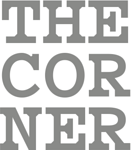July 23–October 31, 2021
1701 14th Street NW
Washington, D.C., 20009
USA
Hours: Thursday–Friday 2–7pm,
Saturday–Sunday 12–5pm
thecorner@whitman-walker.org
The Mental Body takes a new look at the kinship between mind and body. How do thoughts and feelings materialize in bodies? And how does our perception of corporeality affect the way we think about ourselves and others? Despite persisting reductionist ideas of gendered and biological identity, bodies tell manifold complex stories. For bodies are shaped by experiences and environments, by inequities and privileges, and even by the inequities and privileges that imprinted upon those before us. But bodies are also formed by mental means, by perception, concept and feeling. Where the medical establishment has sought to diagnose disorders, mind-body phenomena have been well researched. Examples might range from phantom pain - pain coming from a limb that is no longer there - to body dismorphia. However, those instances, where individuals are actively seeking to bring their physical self in harmony with their mental self, out of instinct or intent, are less discussed or researched. This exhibition concerns itself with aesthetic acts of such self-creation and self-care.
The Mental Body, curated by The Corner’s executive director and curator Ruth Noack, draws inspiration from two sources—a sculpture by Maria Bartuszová and a quote from queer artist Anna Daučìková:
“To live one´s mental body is a persevering and passionate practice: A labour of self-establishment and self-affirmation that Trans-persons do for themselves and for all the others. They do it also for the sake of peaceful co-habitation and in the name of humanity.”
Maria Bartuszová molded many of her sculptures under water, displacing her body and her mind onto the plaster, thereby effecting forms that are at once fragile and tangible, abstract and visceral. Her objects do not directly present the body, but its erotic presence can be felt viscerally. Thus the act of viewing can become a bodily experience, may even produce a body within us.
Anna Daučìková performs for the camera a practice of becoming phallic through movement. The artist’s ability to define her mental body in ethical terms—“for the sake of peaceful co-habitation and in the name of humanity”—has been hard-won, springing from a lifelong resistence to subjugating forces within patriarchy, the catholic church, the Soviet regime, homophobia, transphobia and the new turbo-capitalism of the Former East.
André Terrel Jackson relishes in taking photographic control over their naked fat black queer non-binary body, and thus an odalisque deity appears before our astounded eyes. Rather than an exposure, this is a gesture of self-sufficiency. And the trust of the artist in themselves transports to the viewer as a generous gift.
At the beginning of the pandemic, Luis Jacob finally built what he had dreamt of building for years: a swinging table with a hanging pen that does the drawing in the artist’s stead. But it took Jacob a while to learn how to “let the table do its own thing.” 200 drawings later, Jacob discerned drawings that have certain energy and he culled 12 of them from the lot. The collages simply serve as viewer-friendly hooks into the abyss.
As a long-term HIV survivor, Lucas Michael knows more about his body’s inner workings than most and yet, the constant medical vigilance was becoming fatiguing. Starting from a fascination with the body’s chakras, Michael’s Nomadic Paintings became therapeutic meditations that delve into simultaneous micro and macro worlds: How is it that the cell, one of the body’s smallest particles carries within it an eternity?
In 2017, Matt Storm found himself in Provincetown. Against the background of this famed LGBTQ holiday destination, he chose to do explore his sense of self in a series of studio self-portraits. White walls, a bare floor, stark lighting create an atmosphere of quasi-scientific experiment, as if the self was an empirical value. Yet it is this atmosphere that allows the artists’ self-affirmative gestures to resonate with the viewer, in an Act of Looking that is shared between the artist and us.
About The Corner
The Corner at Whitman-Walker connects cultures and communities through programming of exhibitions, events, educational initiatives and artistic research, in order to increase access to art and to other cultural knowledge production. The Corner generates content around health and social justice concerns from an intersectional LGBTQ perspective by focusing on local and global contemporary art. We activate the creative potential of each and every person and gather a public that will help shape a hopeful vision of the future.
The Corner envisions itself as a communal garden in which a diversity of species grow, nurturing body and soul, a space for experiment, a classroom, a tool box, a venue for (re)presentation.
About Whitman-Walker
Whitman-Walker Health provides high-quality, culturally competent, comprehensive healthcare including preventative exams and management of chronic and urgent health conditions. It offers nationally recognized and award winning care for the LGBTQ community and promotes equal opportunity to health and wellbeing of all persons through care, advocacy, research and education.
For events and educational program see our website or follow us at @thecornerdc.
Contact:
thecorner [at] whitman-walker.org



